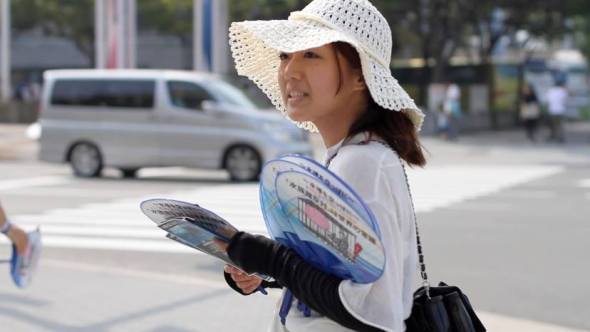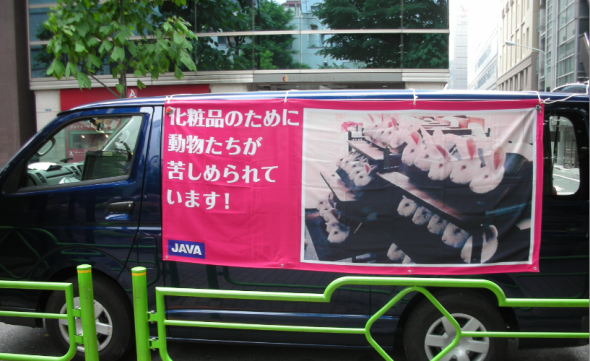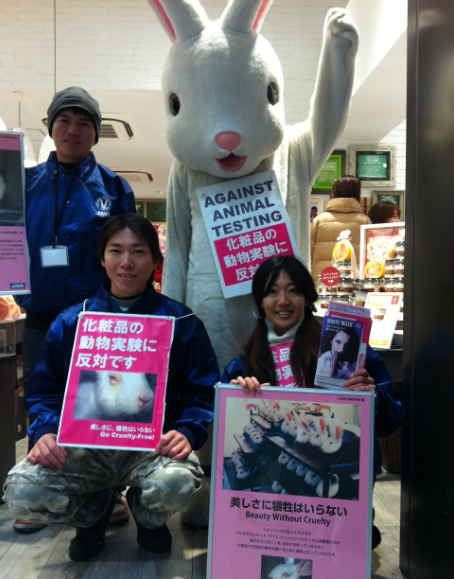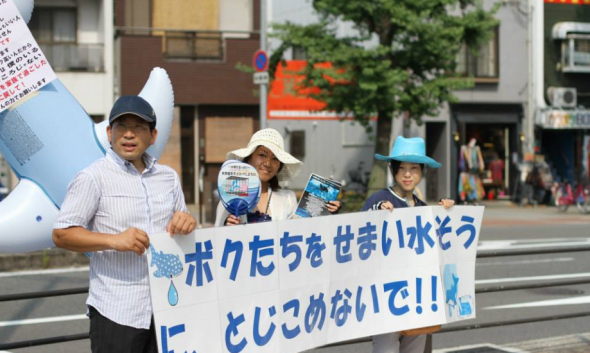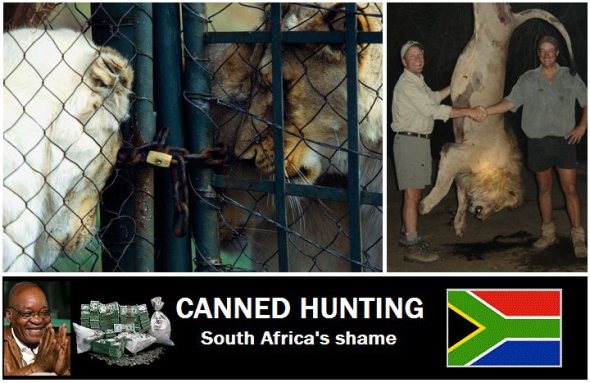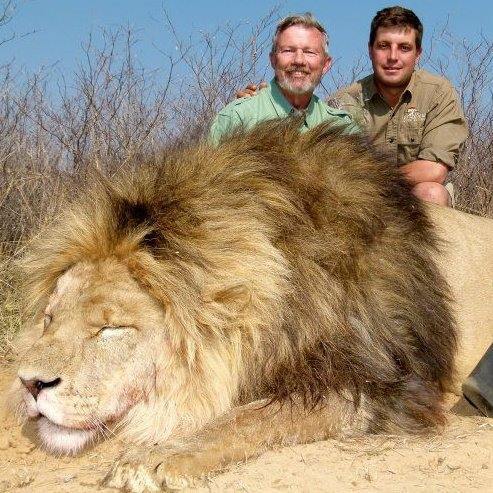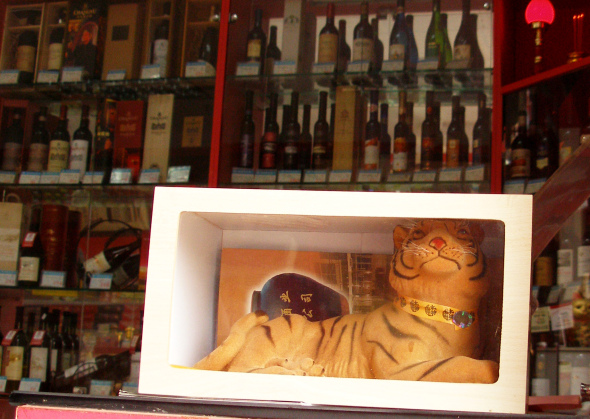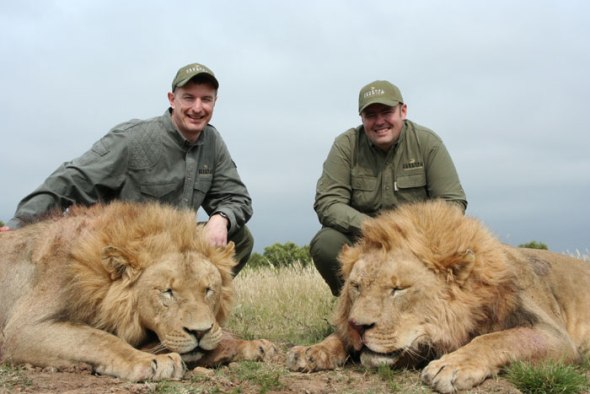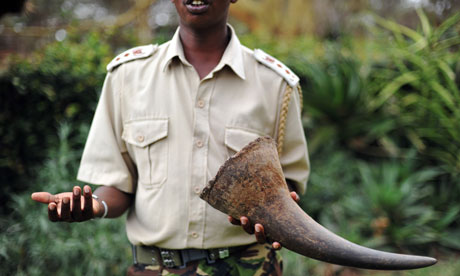Animal Rights in Asia - Meet Vivian
As an influencial Japanese activist and demonstrator, Vivian and her fellow friends have demonstrated outstanding commitment and compassion to many abusive animal regimes. Those who believe all Asians are cruel and barbaric to animals should read this touching interview that we hope will open the eyes of many.
Animal and environmental abuse can provoke great anger and emotion worldwide, which can cause many people to lose control and voice more than their basic opinions or thoughts. Racist comments and death threats has made us concerned that the animal and environmental community is being blackened by such derogatory and abusive comments.
Since the beginning of 2011 the International Animal Rescue Foundation.Org and Speak Up For the Voiceless.Org have noticed many derogatory and racial comments on our more controversial posts featuring topics such as the dog and cat meat trade, dolphin and whale slaughter and the fur trade. There seems to be more hatred directed at the entire population of Asia than that of the individual abuser, user or producer featured in the stories.
We do not support hateful, racist or derogatory comments, whether it be toward abusers or the countries as a whole. Should such comments not cease immediately we will no longer post such stories and investigations, which will only decrease awareness and monetary funding to those causes within Asia that require important, daily funding for an array of animal and environmental issues and projects.Racism and hatred toward any community or country will no longer be tolerated!
For example: “I wish an atom bomb would drop onto Asia; Asian chinks should all be slaughtered; burn all Asians,” to the most upsetting: “all Asian children should be burned at birth,” are just a few of the most disgusting and revolting comments that have appeared on our posts. Why blame the entire community for animal and environmental abuse committed by a minority of people? Furthermore, why throw racial comments at an abuser? These issues have nothing to do with race – it is animal abuse that we must all focus on, not hatred toward an entire race or culture.
This month we focus on Animal Rights within Japan. A country known for its abuse of whales in the Australian-owned Arctic territory, the illegal animal parts trade and the fur trade, it is also andmost importantly known for its animal rights activism a movement that is now taking Japan by storm. On the 12th of December 2013 we conducted a brief interview via email with one of Japan’s most influential animal rights activists.
Meet Vivian, who has been working to eradicate animal abuse and highlight these atrocities despite governmental suppression and public hatred. Vivian is one of many activists who we admire who shows courage and determination, especially for one of such a young age. Harvey Allmendinger, our Environmental Protection Team Leader, had a chance to interviewe Vivian, an interview that paints a more positive light on the positive treatment of animals within Asia, a reality that many people around the world fail to recognise.
Animal Rights Japan – What the World Needs to Know
Harvey – Vivian, how would you best describe yourself as an Asian activist for the voiceless?
Vivian – I am an activist who raises animal rights activists and leads them to Veganism / Vegetarianism by providing a lot of important information and creating awareness.
Harvey – Vivian, what inspired you to become a voice for the many thousands of innocent animals within Japan and how long have you been demonstrating?
Vivian – I have loved animals since my childhood and have always wanted to do something for animals. In 2007, I saw a documentary TV show featuring a woman who manages a shelter to protect animals that are abused or poached by people in Colombia. The abuse against those animals was terrible and hard to believe.. It made me sick and I cried for about a week, unable to contain myself. I thought that I must go to the shelter in Colombia, but I didn’t know how to get there. I looked for the information on the Internet and found that there is lots of animal abuse in our everyday life, and in Japan too, such as animal testing and the fur and skin trade. Animals exist as economical objects for humanuse . After discovering that I become a member of NPO JAVA (Japan Anti-Vivisection Association) in Japan, and started my activism for animals in earnest around 2009, so it’s been about for four years.
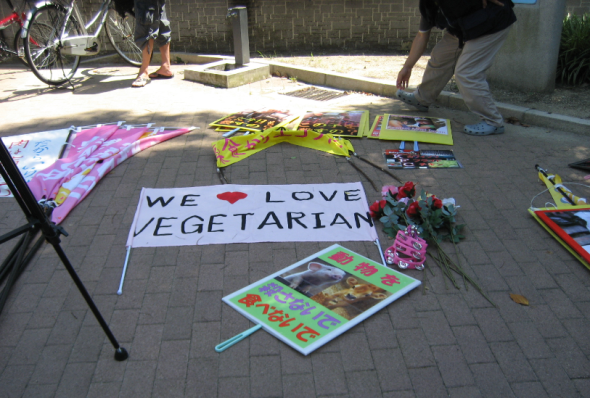
Harvey – Where have you been the most successful as an animal activist, for example, have you managed to change laws, have you changed the way a dog breeding farm works or have you stopped abuse in some other way?
Vivian – With Shiseido, the largest cosmetic company in Japan, which has stopped their Animal Testing (except for in China). JAVA started a negative boycott campaign to stop Shiseido’s Animal Testing in 2009. We conducted demonstration marches in front of Shiseido stockholder meetings in Tokyo and Osaka and asked stockholders to pressure the company to stop animal testing. JAVA also collected signatures through the Internet and a newspaper advertisement, and then handed over about 46,000 signatures to Shiseido. These activities were featured by the media , which attracted people’s attention the fact that animal cosmetic testing is a social problem in Japan. In March 2010, fter about a year after starting the campaign, Shiseido announced that they would begin an effort to abolish animal testing, and in Feb. 2013 they officially announced they would abolish animal testing for all their cosmetics (including materials and commissioning manufacturer) which they began two months later (except for China).
This was a huge victory for animals and for us. Many people’s voices moved the big mountain, Shiseido, and it proved that our movement and our activities were able to bear fruit.
Harvey – Vivian, what you and JAVA have accomplished is amazing and we thank you for so much for your dedication and hard work. People like you and those at JAVA show the world that the Asian community does care about animals.
So what has been your largest demonstration, why did you demonstrate and did it make a difference? I am asking why because it shows the animal welfare community outside of Japan how capable and passionate Asian activists are about making change.
Vivian – Our first demonstration against eating meat in Japan took place on July 18th, 2010 Sunday. This was the first demonstration against eating meat in Japan, and it played an important role in raising the awareness of the Japanese people.
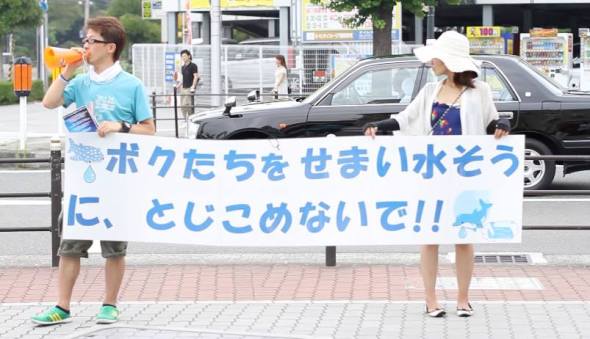
Harvey – What are your thoughts about the fur and meat trade of dogs and cats?
Vivian – I am absolutely against the fur and meat trade of dogs and cats. Japanese people love dogs and cats, and most don’t know that dogs and cats are killed for fur and meat. I want them to know the truth. I think if the Japanese people knew the truth, they would be shocked and it would be an opportunity to think about those issues and stop them .
Harvey – Whenever Speak Up For the Voiceless.Org and many other animal and environmental organisations create awareness about the dog and cat meat and fur trade within Asia we receive such harsh racial slurs against Asians. The general public does not understand that those who do the abusing are only a minority and instead, they blame all Asian citizens. What are your thoughts on this and do you have a message to those people that brand all Asians as cruel to animals?
Vivian – I think the culture that eats dog and cat meat, as well as dolphin and whale, has to be criticized. However, in Asian countries, I guess many people think the culture is is comprised of elderly people and out of date - many don’t even know about the culture. I think if more people knew the facts they would see that this culture is wrong and not humane. I want those people who think all Asian people are cruel to know these things and that many people within Asia are also upset about this cruelty .
Harvey – When we document the cruel abuse that animals suffer within Asia we are met with comments such as, “boycott Asian products.” What are your thoughts about this and do you think it is fair for people to ask for this knowing that boycotts affect innocent Asian citizens and can potentially harm them economically?
Vivian – When we want to solve these problems, we have to consider doing more effective, productive and meaningful things and organize a plan. Products are produced because the consumer wants to buy them. I think if the consumer stops buying products made in countries that abuse animals or made from abused animals, the products will not be produced, so that can be effective, however, to boycott Asian or some other country’s products indiscriminately is not good or effective.
Harvey – Thank you for explaining that, Vivian. I do believe that if people boycotted products that are made from abused animals then this would be very beneficial . To boycott an entire country is not good or very effective and can have disastrous effects for many, even those who are actively fighting to stop abuse.
I see that you have been working on many issues such as anti-fur, anti-vivisection, no kill / adopting, vegetarian / anti meat-eating, animal welfare. Please describe what your role is with these projects and how influential you have been - have you made change happen, and if so, how did this make you and others feel?
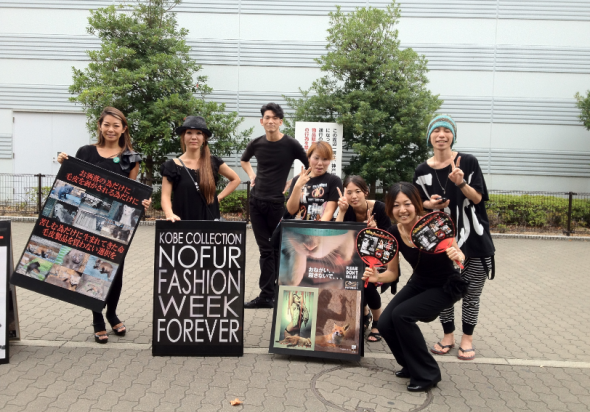
Vivian – I did succeed in spreading awareness through many actions and to many people through demo marches, panel exhibitions, leafleting, SNS, blog, BBS and so on. I’ve also appealed to many companies, administrations and governments etc. to save animals via stopping animal testing, killing dogs and cats, to making effective laws to protect animals and so on via telephone, fax, e-mail and mail, as well as offering information about living a cruel-free lifestyle by becoming vegan/vegetarian, boycotting products that use animal testing and promoting vegan products. One of our most successful actions was Shiseido’s Stop Animal Testing boycott campaign. I think it is most important to spread facts and awareness but also the facts on what and how to do even one little thing to help animals. Over the several years my fellow activists and friends have beenspreading these facts awareness I received so many reactions such as, “I was shocked I became a vegan/vegetarian,” or, “I didn’t know these facts, thank you for telling me,” or, “I will start doing something to help animals, like you,” or, “I want to join in your activities because I want to be voice of animals”. All of these comments encourage me and make me feel glad I have been doing these things . We have to continue widening the circle of awareness.
Harvey – Vivisection is an appalling act of animal abuse. What is your message to the European and American vivisectionists that take animals from Asia to use and barbarically torture?
Vivian – Honestly, I want them to stop every vivisection now since they are meaningless and wrong from the point of view of ethics and science and for people and animals. Also, the transportation of these animals, which places them in very stressful conditions for long periods of time, is unacceptable. Harvey – Your demonstrations in Japan look very effective and colourful Many activists across the globe often have issues with police suppression. . What are your thoughts on this and have you or a friend ever experienced police brutality?
Vivian – In my area most policemen are polite and good to us, as well as cooperative, as we are, so I have never felt bad around them. Some of them have actually praised our activities and our demonstrations .
Harvey – Vivian are you a vegetarian or vegan? What made you turn to (either) and why?
Vivian – I’m a strict vegan because I want to help animals and don’t want to eat them. Many animals will not be produced and killed if I stop eating or using animals. I stopped eating meat and became a vegan once I become aware of animal abuse and understood that many animal rights activists are vegan / vegetarian. I think veganism is a non-violent lifestyle, and to become vegan is just a starting point for me. For animals, environments, people and our earth, we can do many more and very simple things to put a brake on this mass production / consumption / destruction economy. We need to popularize being vegan.
Harvey – The Sea Shepherd Conservation Society have been actively making great progress against the whaling business by lowering kill rates and highlighting abuse. However, SSCS has come under great fire from the Japanese and other governments for its effective non-violent campaign. What is your position on the whaling business, do you believe that Japan must stop whaling to protect future marine conservation sites and mammals and what are your thoughts on the consumption of whale meat and why the Japanese culture should end it?
Vivian – I think Japan must stop whaling now for the conservation of the environment and the animals. Whaling is continued due to our taxes for political concessions and earns copious profits for only few people. There is actually a surplus on many whale meats, whichcauses low demand, so it is unnecessary.
Harvey – The International Animal Rescue Foundation has been actively fighting against the use of rhinoceros horn as pseudo medicine in the traditional Chinese medicine trade. . Rhinoceros in Asia and India are brutally slain for their horns, which are hacked off to feed this repulsive trade in Asia. What are your thoughts on this and do you have a message to say to the Asian and non-Asian Rhino horn medicine-using community?
Vivian – Hunting rhinoceros is so cruel and this abuse should never be accepted - we must stop it soon. Humands need to stop using animals for their own selfish desires.
Harvey – Every 15 minutes an elephant is barbarically killed in Africa just to provide ivory, better known as white gold. We are losing a staggering 35,000+ elephants a year due to the fact that many Asian individuals believe that the elephants tusk can be removed without killing the animal . What are your thoughts on this and have you demonstrated against the use of rhino and ivory parts, as well as the poaching of these two mammals?
Vivian – This is also horrible - hunting rhinoceros and elephant must stop now. A lot of substitutes already exist, so there is no reason to use real ivory. I have signed some petitions and spread these facts throughout the Internet to help stop this abuse.
Harvey – Millions of dogs and cats are left homeless every year internationally and locally within Japan because of animal neglect and abuse. What work have you done to promote a no-kill policy and the adopt, don’t shop philosophy?
Vivian – It’s so shameful that we have not stopped this kind of slaughter in our own country. The number of animals abandoned at (animal shelters) is still big. Most of them are unwanted kittens, so we have also promote sterilization http://ejje.weblio.jp/content/sterilization and castration operations to help control the unwanted cat population. Also, to stop killing animals, we have to abolish the commercial pet industry. I have been involved in many educational actions such as demonstration marches, leafleting, panel exhibitions and Internet awareness spreading as well as posting our demands to stop the needless killing of animals. Additionally, I have visited administrative facilities (animal shelters) that have many animals and kill animals and had meetings with those in charge. The Law of Humane Treatment and Management of Animals of Japan were revised slightly in 2013, but it is not strong enough and has not been used efficiently yet. We have to continue our educational activities, and make many more people understand why they should choose to adopt, not shop.
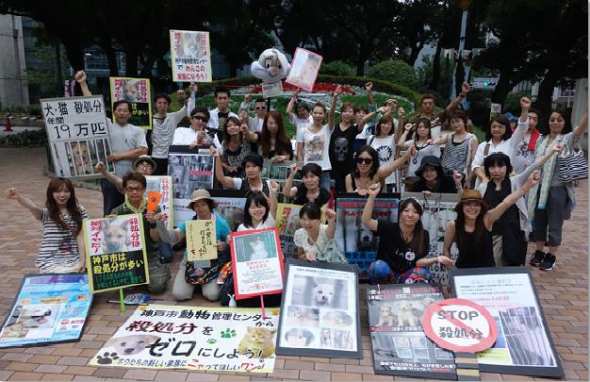
Harvey – That’s amazing, Vivian - your contributions and hard work are breathtaking. You really do show such love and compassion and possess such a strong voice for stray animals within your country and others. Well done!
I would like to take this opportunity in thanking you, Vivian, for answering my questions and to thank your fellow activists at JAVA for such outstanding work and achievements. It really goes to show that the Asian community does care, hates animal abuse and that there are only a minority of people that actually do kill and abuse animals. Knowing that few people within Japan are actually aware of such abusive regimes can only inspire us to promote and support all Asian activists and create more awareness about their works.
“ “My aim is not only to stop animal abuse but also to change our current mass production, consumption, destruction economy,” says Vivian. “I will fight to end the suffering of animals until the end of my life.”
Now who can say that all Asian citizens are animal abusers who will kill anything? International Animal Rescue Foundation and Speak Up For the Voiceless actively supports many Asian activists whose work to reduce animal cruelty and change laws to protect animal welfare we will continue to highlight. Vivian is a young, passionateactivist that has committed her life to animal welfare - we can’t thank her and comrades enough for working so hard to create such positive change for animals in their country .
Big LION Debate - African Hunters & Farmers Feeding Animal Parts Trade.
CANNED HUNTING - BREEDING - SOUTH AFRICA’S CONTRIBUTION TO FAKE TIGER BONE WINE
Tiger populations have plummeted since the 1940’s worrying conservationists and wildlife organisations around the world. The main threat to Tigers are humans but more importantly the trade in Tiger bone wine. 3,200 Tigers remain in the wild although this number could be significantly lower than previously thought. There are 9 subspecies of tiger, three of which are extinct. Habitat degradation/ fragmentation caused by human over population, mining, and increased palm oil deforestation could soon spell extinction for all remaining Tigers in the next 10-20 years. Should all last remaining Tigers vanish, bringing them back from extinction will be impossible spelling a new trend of poaching and illegal hunting. The Lion is next on the Traditional Medicine mans agenda.
For millennia, medicine men across Asia have ascribed magical powers and healing properties to the tiger, and, somehow, the cat became a universal apothecary. Nearly every part, from nose to tail—eyes, whiskers, brains, flesh, blood, genitals, organs —is used to treat a lengthy list of maladies. Tiger parts are believed to heal the liver and kidneys and are used to treat epilepsy, baldness, inflammation, possession by evil demons, toothaches, malaria, hydrophobia, skin diseases, nightmares, laziness, fevers, and headaches. The bones are considered powerful medicine. Newborn babies are bathed in bone broth so they will grow up disease-free.
There is a growing, demand for Tiger bone wine, a tonic made by soaking a Tiger carcass in rice wine. It is thought to cure arthritis and muscle pain, to stimulate blood flow and qi (the life force the Chinese believe inherent in all things), and to impart the animal’s great strength. Since 1994, a few Chinese practitioners have repudiated the efficacy of Tiger remedies, with little result. It wasn’t until three decades ago that scientists realized that TCM was responsible for a precipitous decline in Tiger numbers.
As Tiger populations in China plummeted, professional poachers fanned out, snaring, trapping, and shooting their way across Asia, targeting locations where corruption was rife, enforcement weak — and where there were few other economic opportunities. Lion breeding then became the new hobby that now sees more Lions on farms than there is within the wild. Poachers hire mostly local tribal people to hunt the cats or act as guides. Then they ran prize parts over borders to Chinese TCM manufacturers. Tigers were classified as globally endangered in 1986. The next year, an international treaty banned cross-border trade in Tiger parts, driving the market underground. China banned domestic Tiger bone trade in 1993, though shadowy networks remain.
Although Tiger hunting is illegal everywhere, the killing has accelerated. Prices for Tigers, dead or alive, continue to soar as populations collapse. Poaching for TCM (and to a lesser degree, for their skins) has become a primary threat to their survival. INTERPOL agents informed Congress in 2008 that the same sophisticated underworld crime networks that run illicit gun, drug, and human trafficking operations also mastermind the wildlife trade. With high profits and low risks, it has become one of the fastest growing and most profitable types of international organized crime, growing into an estimated $20 billion a year business that helps purchase weapons, fund civil wars, and finance terrorist activities. Still, most governments view wildlife crime as an “environmental” issue, keeping it low on the priority list.
China still farms captive bred Tigers depriving them of food at a mature age from which death is slow and painful. Activists and conservationists have called on China and Indonesian Tiger captive zoos to be closed down immediately. Unfortunately money is the main player here and whilst there is good fortune and happiness, Tiger populations will most certainly diminish unless international governments now recognize poaching as a domestic terrorist threat and not just a “conservation issue”. LION POACHING in South Africa has since increased due to Tiger populations decreasing.
In the South African National Parks (SANparks). Poachers from North Africa and even Europe are hitting the parks at an unprecedented rate worrying many. Increasingly people are appearing in court on charges of stealing white Rhino, Buffalo, and Lions worth thousands of US dollars.
Even Giraffe have been stolen - (stolen not poached). According to SA National Parks CEO, Mavuso Msimang, poachers and thieves are stealing millions of South African rands in animal, plant and marine life from our “national treasury” of reserves. “These unscrupulous people are attacking the economic fabric of our national tourism industry,” he maintains. Msimang says most of the poaching inside Kruger is under control but that there are problems just outside its border with Limpopo, where “highly organised syndicates” are operating. Illegal immigrants from Mozambique, rip huge holes in the park’s western fences, he says, adding that he has seen evidence that many Lions have been lured through these holes by foreign hunters.
South Africa has its fair share of poachers and poaching incidents, but worryingly its own citizens are cashing in on the Traditional Chinese Medicine market that is now threatening to wipe out Lion species for ever. Hunters mainly American pay in the region of $10,000 (USD) to hunt a Lion in South Africa. Big bucks for the breeder and farmers. Concerning; the breeder can then make a further $5000 selling the bones to Chinese dealers based in Africa that subsequently ship the bones out to Asia - sold as pseudo Tiger bone wine. Business is big and whilst American AND African hunters continue to feed this trade there also pushing our Lion species ever closer to the brink of extinction.
Lion murdered Janury 2014
BACK in 2011 Phichet Thongphai, 31, and Punpitak Chunchom, 44 were apprehended by South African Revenue Service (SARS) and South African Police (SAPS) for peddling Lion bones to overseas dealers. Sentenced, their punishment was a mere slap on the wrist - kicked out of the country on the next available flight. A punch in the face to many conservationists and Anti Poaching Units that unselfishly work to combat illegal animal parts trade and poaching.
The two Thai men pleaded guilty to being in possession of 59 Lion bones without a permit. The bones, which were primarily claws and parts of the paws, were found rolled up in plastic and hidden in a sock inside a piece of luggage at a house in Edenvale, east of Johannesburg. The house was raided by SA Revenue Service officials and the police, after they questioned the accused at the OR Tambo International airport. The men, Phichet Thongphai, 31, and Punpitak Chunchom, 44, were sentenced in the Germiston Magistrate’s Court to a fine of R10000 or six months’ imprisonment. A further R100000 fine or five years’ imprisonment was suspended on condition that both men take pre-booked flights out of the country that following Saturday. Phichet Thongphai claimed he worked for a Laos-based company, “Vichai company”, the “main business” of which is to trade in Lion bones. It is understood that this company’s real name is Xaysavang Export Import. Thongphai said he and the other accused “were sent to South Africa by the company to view and approve Lion bones to be bought and shipped to the company in [Laos, Thailand]”.
He further said that the “company for which I worked is usually contacted by farm owners in South Africa and advised that they have Lion bones for sale”. Magistrate Hasani Mashimbye stressed how serious the crimes were: “Future generations of this country will not know what a Lion is by the acts of people coming from outside the Republic.” Lion breeding and trophy hunting is on the increase in South Africa and yet the Department of Environmental Affairs seems non-to-interested in dealing with this major conservation problem. Hunters are contributing more to Lion populations decreasing than that of any African poacher supplying the medicine market in Asia. Hunters who do not want to keep the Lion’s head as a trophy pockets the South African farmer and breeder more rand - the skull will fetch another $1,100.
If you put your money in the bank you get 8% interest. But at present Lions show a 30% return. According to several specialists the new market is soaring. “In the past three months we have issued as many export licences as in a whole year,” says an official in Free State, home to most of South Africa’s 200 Lion breeders.
In 2012 more than 600 lions were killed by trophy hunters. The most recent official figures date from 2009, certifying export of 92 carcasses to Laos and Vietnam. At about that time breeders started DIGGING up the Lion bones they had buried here and there, for lack of an outlet. Asian traders started taking an interest in South African Lions in 2008, when the decline in tiger numbers – now in danger of extinction – became acute.
Are we being to harsh though - blaming American hunters that seem to be contributing to the trade in fake Tiger bone wine? International Animal Rescue Foundation Africa says no.
On questioning the Environmental External Affairs Department - Africa they quoted;
“Whilst there is a trade in fake Tiger bone wine and demand for Lion bones that fetches many thousands there will be a constant threat from man to line his pockets from the money made peddling in animal parts locally and across the seas especially in America”. “In 2011 five US citizens were apprehended by the state police force for digging up a Lion carcass, this poses the question again of just how big the now Lion / Tiger bone wine trade is, whilst this trade grows it will most likely meet that of the illegal Rhino horn and blood ivory trade”. “Lion farming and hunting must be banned now, sooner rather than later”. “We will make it our duty to ensure that Lion bone trade, hunting and farming of Lions is banned as with the proposed still illegal Rhino horn trade stays banned indefinitely - regardless of who and what, our wildlife must be protected for eternity”
How big is Lion bone trade in the United States?
Five people were charged with trying to steal the carcass of a Lion that was among dozens of exotic animals released from a private compound by their suicidal owner and later shot dead by sheriff’s deputies in a bizarre game hunt. Deputies said they stopped four men and a teenage boy who had loaded the Lion into a Jeep several hours after the animals ran from their cages at the Muskingum County Animal Farm near Zanesville, in eastern Ohio. Officers were forced to kill 48 wild animals including Bears, Lions and endangered Bengal Tigers during an all-night hunt after their owner, Terry Thompson, threw open their cages in the afternoon on October 18 2011 before committing suicide.
Deputies discovered the Lion after they stopped a vehicle with its headlights on near the farm just hours after the animals had been let loose. Inside the Jeep, they found the carcass of a male Lion - one of nine Lions that had been housed at the compound. It was/is (thought) the Lion was to be used for the lucrative Lion bone wine trade. Prosecutors did not say what they believed the suspects planned to do with the animal’s body although suspicions were high.
No other animal body was found to be in possession of the five men aged from 19-21 years of age. Those charged were; Cody Wilson, 21, from Byesville, Brian Matthews, 21, from Kimbolton, Richard Weidlich, 19, and Joseph Jakubisin, 21, both from Cambridge. Fake Lion bone trade is extremely rife America and Africa.
We have even located European sellers trading in Lion bones, skulls, and claws. Mountain Lion bones and carcasses typically from the United States are traded in many forums to Asian and American dealers looking for only “bones” and nothing else, the bones are then collected in large piles then shipped out to Laos, China, and Vietnam. Prices can fetch from $150 to a staggering $3000 being the highest we’ve seen from just one carcass. African and American taxidermists would normally sell the bones at a knock of price from the dead animal they are stuffing or just dispose of them. Regrettably though Tiger populations are plummeting, trade in pseudo Lion bone wine is increasing.
American hunters and taxidermists seem to be second of the largest traders worldwide. As secretive as it may be to some - International Animal Rescue Foundations External Affairs Department located on-line and in free adverts posted all over the United States and Africa many a trader. One taxidermist from Oregon, USA, quoted
“I’ve got a large lioness dew claw, some knuckle bones, and a few toes minus the claw, with the fur still attached. Wanting $150.00 for the dewclaw, am open to negotiation on the others”
A further hunter from Maryland looking only for African Lion bones quotes
“Searching for some legal exotic game bones, in particular African lion. I live in MD. PM me or send an email to ******@****** and we’ll talk. Thanks in advance!
A third hunter out of over 44 individuals trading in bones from Houston, Texas quotes, “ Looking to buy African Lion products. Looking for claws, teeth, skin scraps, mainly bones, etc. Let me know what you have and price ($300 limit) with shipping to 77459 Shoot me a message”
Exotic game farming is also on the increase in Southern Africa too. Least forgetting sales of Lion, Cheetah, Leopard, and even Tiger cubs mainly from Botswana. International Animal Rescue Foundation Africa knows to well where these animals are ending up, as well as their parts. The breeding of exotic species has become increasingly popular in recent years and, given the impressive return on investment, it is not hard to see why.
An investment of R25-million in a cattle farm in Bela-Bela would produce earnings of less than R1-million each year — a 4% return. Measured in terms of turnover, the wildlife industry has grown at an average rate of 20.3% a year over the past 15 years, although the recession is said to have stunted growth since 2008. South Africa has more than 10 000 commercial wildlife ranches occupying 16.8% of the country’s land. Half are located in Limpopo, a further 20% in the Northern Cape and 12% in the Eastern Cape.
Profits generated from the ranches vary, depending on rainfall and land prices, but research indicates that a typical commercial game ranch generates about R220 a hectare of economic output, compared with an average R80 a hectare for conventional livestock farming. Unsurprisingly, rare-game breeding — of Sable and Roan Antelope, Buffalo, Rhino and Lion — is rapidly growing as an investment choice and attracting savvy businesspeople such as Cyril Ramaphosa and Norman Adami, managing director of South African Breweries. Jacques Malan, president of Wildlife Ranching South Africa, said rare-game breeding was so lucrative that successful business-people with experience in the stock market have realized game farming could give them the dividends they want.
The Department of Environmental Affairs Hon Edna Molewa refused to comment on our findings and hard hitting evidence of over a dozen ranchers in Durban and Free State selling to our Environmental Investigators Lion bones. As rare game breeding increases - so will the trade in animal parts from Africa to Asia. Until the Department of Environmental Affairs gets to grips with this problem we have nil hope in preserving our dwindling Lion species. Officials in South Africa though seem non-to-bothered about the diminishing Lion populations as well as big cats being sold from Botswana to South Africa. The Mail quoted South African farmers are using cattle-rustling routes in the Northern Cape to smuggle wild Lions and other predators out of Botswana to supply a growing demand for Lion-bone potions in the Far East.
Conservationists said the illicit trade by organised cartels was adding to the pressures that could see the extinction of big cats in the wild within 10 to 12 years. They denounced Environment Minister Edna Molewa’s recent response to parliamentary questions that a moratorium on Lion-bone exports from South Africa was unnecessary because they do not pose a threat to the survival of the species in the wild. This is a typical response from Edna Molewa that states she is just as concerned about Rhino poaching than that of South African citizens. She most certainly has a funny way of showing it. That’s for sure. An investigator on the South African side of the border said the cartels were supplying breeders of big cats in North West, Limpopo and the Free State, where most of South Africa’s 200 lion breeders are based.
More on this story will follow soon in February 2014 PART III - External Affairs investigates and exposes just how easy it is to purchase Lion bones from Africa - transporting to Asia onto the TCM medicine market.
WWW.SPEAKUPFORTHEVOICELESS.ORG
Please visit the site of BESUREIS Anti hunting - Vocal activists against ANIMAL ABUSE.
BESUREIS - Published on 13 Sep 2013
Here is an adapted version of “Say No”, which we wrote about trophy hunting. “Say No” appears on our debut album “Strawberry” and is available to download from www.besureis.com
Featuring the fabulous Caroline Luxton-White, Mattia & Maethew.
Big thanks to Youtube, The Mountain, Karolina Viciute, Ida-Sofie Picard and Austeja Jokubauskyte. Please share if you are against trophy hunting and animal cruelty….
Duke, Rubin & Jule - BESUREIS
Written by Duke Ingram
Co-written by Duncan McDowall
All BESUREIS work is copyrighted
All animal images are courtesy of google and are listed as “free to use or share, even commercially”

